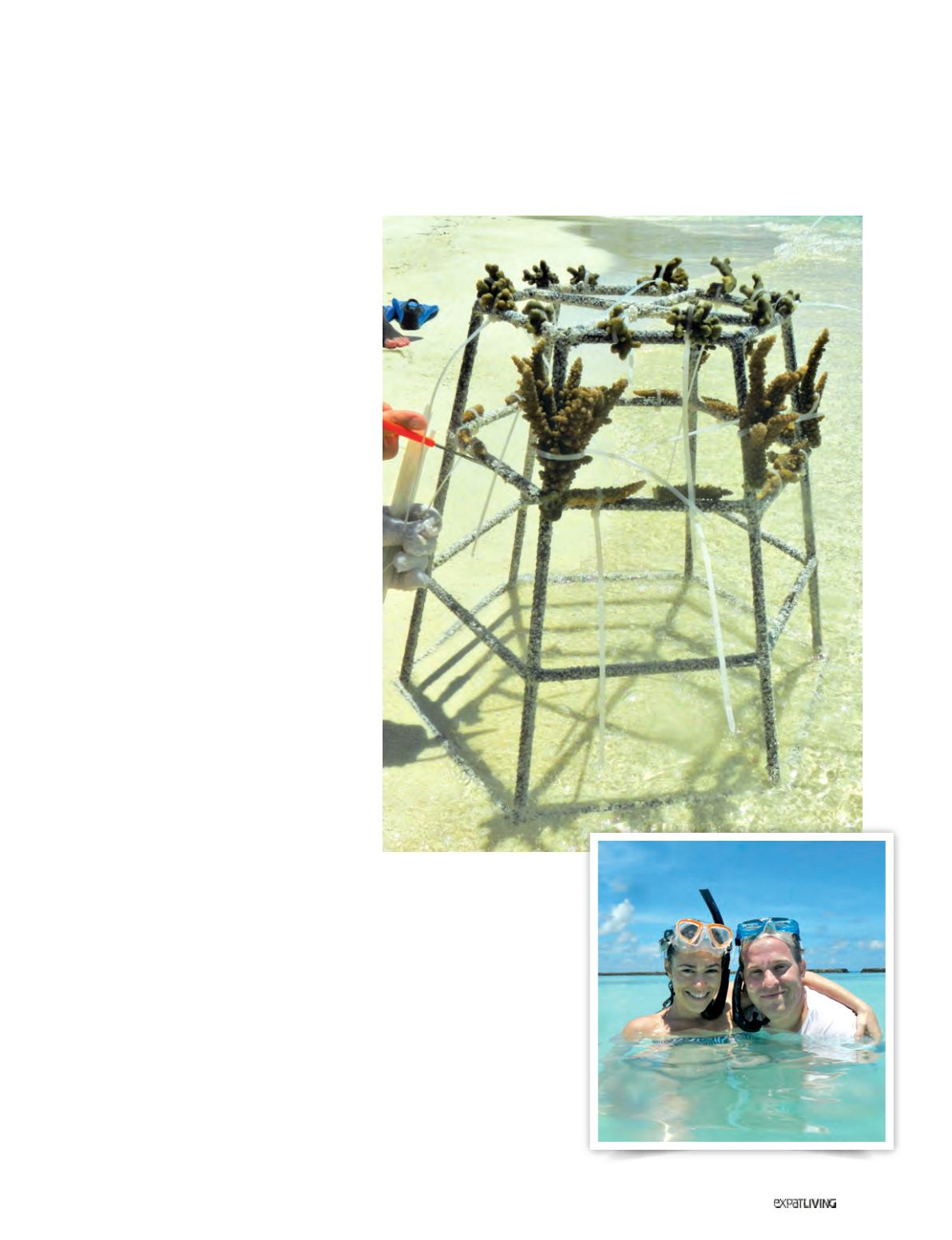

MALDIVES
215
February15
Coral Transplantation
Dedicated to raising awareness and
helping to protect the precious aquatic
environment, the Marine Centre team
also conducts various environmental
awareness and education programmes,
like the coral transplantation (or “coral
gardening”) workshop that we took
part in. In fact, all Baros guests have
the fascinating opportunity to help
create small coral nursery areas around
the house reef; the aim is not only to
reproduce corals, but also to establish
homes for various fish and invertebrates
like starfish, crustaceans and sea
urchins, among others.
Here’s how it works. Corals are
tiny animals that live in colonies and
reproduce sexually over a few nights
a year by releasing their eggs into the
water. During the remainder of the year,
they simply bud off and create clones
of themselves – marine biologists have
been making use of this in order to
produce more sea life. By increasing
the reproduction of the most successful
clones, they hope to develop stronger
corals that can withstand high ocean
temperatures and global warming.
After an introduction to coral
regeneration, we went into the ocean
to collect broken but still living coral
fragments from the seabed and then
went back on sand to affix them to
a man-made coral table. Once they
were tied on, we helped carry the
table back into the water and watched
as our guide placed it amongst the
other transplanted nurseries. These
regenerated corals are regularly
monitored and photographed to
document the types of marine life
they’re attracting and how they’re
progressing in their environment.
The workshop, which was about
an hour long, added a different
educational element to our relaxing
beach vacation, and is something we’ll
always remember. We didn’t just learn
about sea life and coral renewal – we
actually got to contribute to helping the
environment firsthand, even if it was just
in a little way.
Guests who would like to
contribute to this environmental
programme without doing the
“dirty work” can donate to the
Coral Reef Rehabilitation Fund,
which allows them to sponsor
one or more coral tables that will
be filled by the Marine Centre
team and added to the growing
reef. A personalised nametag
is attached, and photo updates
are sent twice a year. In fact,
when we were placing our coral
table underwater, our guide took
snapshots to send to some of the
coral table sponsors.



















